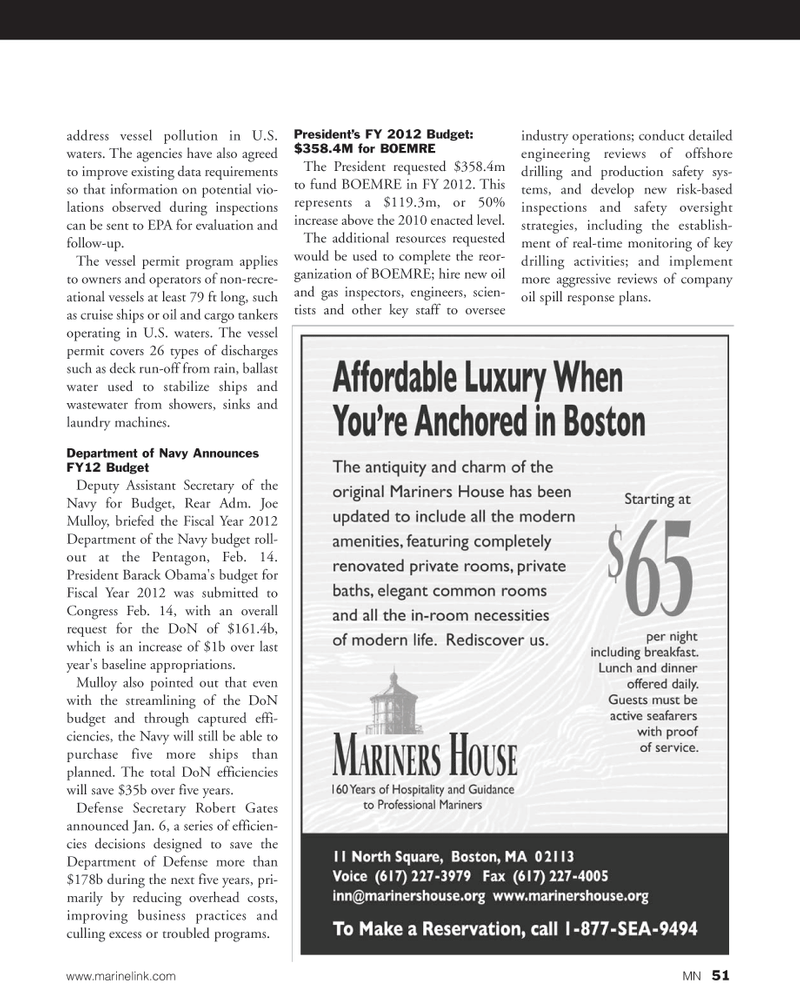
Page 51: of Marine News Magazine (March 2011)
Marine Training & Education Edition
Read this page in Pdf, Flash or Html5 edition of March 2011 Marine News Magazine
address vessel pollution in U.S. waters. The agencies have also agreed to improve existing data requirements so that information on potential vio- lations observed during inspections can be sent to EPA for evaluation and follow-up.
The vessel permit program applies to owners and operators of non-recre- ational vessels at least 79 ft long, such as cruise ships or oil and cargo tankers operating in U.S. waters. The vessel permit covers 26 types of discharges such as deck run-off from rain, ballast water used to stabilize ships and wastewater from showers, sinks and laundry machines.
Department of Navy Announces
FY12 Budget
Deputy Assistant Secretary of the
Navy for Budget, Rear Adm. Joe
Mulloy, briefed the Fiscal Year 2012
Department of the Navy budget roll- out at the Pentagon, Feb. 14.
President Barack Obama's budget for
Fiscal Year 2012 was submitted to
Congress Feb. 14, with an overall request for the DoN of $161.4b, which is an increase of $1b over last year's baseline appropriations.
Mulloy also pointed out that even with the streamlining of the DoN budget and through captured effi- ciencies, the Navy will still be able to purchase five more ships than planned. The total DoN efficiencies will save $35b over five years.
Defense Secretary Robert Gates announced Jan. 6, a series of efficien- cies decisions designed to save the
Department of Defense more than $178b during the next five years, pri- marily by reducing overhead costs, improving business practices and culling excess or troubled programs.
President’s FY 2012 Budget: $358.4M for BOEMRE
The President requested $358.4m to fund BOEMRE in FY 2012. This represents a $119.3m, or 50% increase above the 2010 enacted level.
The additional resources requested would be used to complete the reor- ganization of BOEMRE; hire new oil and gas inspectors, engineers, scien- tists and other key staff to oversee industry operations; conduct detailed engineering reviews of offshore drilling and production safety sys- tems, and develop new risk-based inspections and safety oversight strategies, including the establish- ment of real-time monitoring of key drilling activities; and implement more aggressive reviews of company oil spill response plans. www.marinelink.com MN 51

 50
50

 52
52
